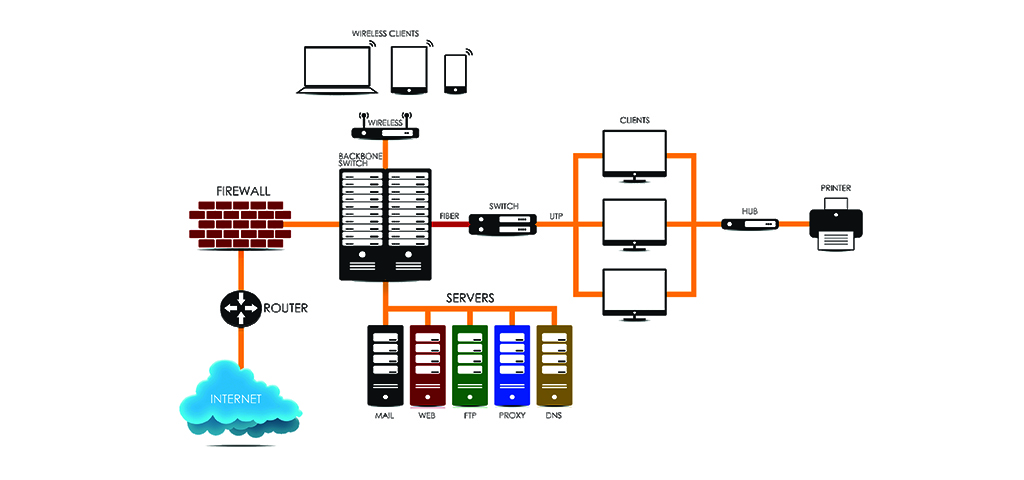- Home
- Boost Your Career With Cisco Certifications (Part 2)

Boost Your Career With Cisco Certifications (Part 2)
 Cisco Systems employs more than 70,000 individuals and is top known for switching and routing portfolios that can be found in businesses worldwide. The networking genius also copes one of the most respected, comprehensive and relevant certification programs in the tech world. Whether you are novice to networking or a master, you’ll always consider get at least one certification – if not, you perhaps already possess that!
Cisco Systems employs more than 70,000 individuals and is top known for switching and routing portfolios that can be found in businesses worldwide. The networking genius also copes one of the most respected, comprehensive and relevant certification programs in the tech world. Whether you are novice to networking or a master, you’ll always consider get at least one certification – if not, you perhaps already possess that!
Cisco certifications demonstrate a professional’s abilities and comprehensive knowledge of Cisco instrument. By itself, these proficiencies can ultimately lead towards higher earnings for pros, particularly contractors, and are an amazing route to get a senior high-paying job in field of networking. Though, Cisco’s comprehensive certification program can be complex. With that in your mind, mentioned below your complete guide to Cisco’s Career Cert program.
Cisco’s Certification program covers a massive range of networking related disciplines across experience levels and varying difficulty. In order to achieve any of Cisco’s certificates, individuals need to pass one or more exams directed by Pearson Visual User Environment (VUE). These exams are complex and even the basic levels will initially require comprehensive knowledge of the Cisco technologies being evaluated.
Levels of Cisco Certifications
Numerous Cisco certifications align to openly defined ranks recorded in terms of prerequisites and experience needed. Cisco generally offers five levels of certification comprising off:
- Entry
- Associate
- Professional
- Expert
- Architect
Every single band typically involves a diversity of different certifications designed for candidates to boost their knowledge thru distinct networking related subtopics like cloud and security, routing & switching etc. We’ve already stopped on the initial levels of Cisco certification and this article is devoted to Pro and Expert levels.
Professional Level Cisco Certifications
The professional level Cisco certification covers credentials across design and operations tracks: Cisco Certified Data Design Professional (CCDP) and Cisco Certified Network Professional (CCNP).
Just like CCNA, there is a series of CCNP certifications covering a wide range of networking related job roles, including Cloud, Wireless and Data Center. CCNP level certifications corroborate a professional’s proficiency to troubleshoot and deploy wide and local-area enterprising networks whilst dealing with specialists in voice, security, video and wireless. CCNP certification holders also qualify themselves to work as network engineers, support engineers as well as technicians.
One certification is accessible for professionals on networking design track i.e. CCDP. This most prevalent certification proves an individual’s ability to deploy and design multilayer and scalable switched networks. In order to gain CCDP, candidates should complete three basic exams.
Expert Level Cisco Certifications
Successfully accomplishing CCIE is a farfetched milestone as well as a badge that each and every networking pro will keep and mention with the extreme level of pride.
Which Exams To Pass
With the intention of getting these advanced level certifications, candidates should have a valid CCDA or CCNA certificates accompanied by relevant and comprehensive knowledge needed to pass certification exams. Each CCNP certification requires completion of four basic exams.
There are seven expert levels of Cisco certification exists, covering one certification for networking design track:
- CCIE Security
- CCIE Routing and Switching
- CCIE Data Center
- CCIE Wireless
- CCIE Collaboration
- CCIE Service Provider
- CCDE
CCIE holders have specialized technical proficiency of Cisco network related solutions and products within relevant CCIE Cert technical track. A single design-focused CCDE cert tracks out specialists who develop infrastructure solutions for large scale ventures as well as enterprise environments.
Skills Needed
In order to achieve CCIE certification, candidates should pass out a complex multi-step certification exam, comprising off two hours written assessment along with prolonged eight-hour lab exam. Whilst Cisco does not require any official requirements to take on exam, professionals are strongly suggested to possess a pertinent CCNP and experience prior attempting for CCIE.
Career Prospects for CCNP Certified Experts
There are numerous job positions that could be filled by a candidate with a CCNP certification. It’s compulsory that you are cognizant of all job positions you can fill out after you get your Cisco Certified Network Professional (CCNP) certification thus you can apply for and select a role that provides you extreme level of satisfaction and perfectly fits your interests or a skill set.
1. Network Services Manager
A number of organizations cannot work without employing the services of a Network Manager. A network services manager supervises smooth functioning of organization networking mechanisms and will be projected to take key roles in mainly everything pertinent with company’s networking systems.
2. Certified IT Administrator
IT administrators generally provide technical assistance. These are the individuals who will be called every time other employees face problems with their IT products or systems. Any type of tech support pertinent with company’s network will be handled by an IT administrator; therefore CCNP experts are provided top hiring priorities for these roles.
3. Network Security Administrator
A network security administrator, typically called a system administrator, is accountable for keeping a company’s computer networking mechanism up-to-date and running efficiently. Any organization or company that makes use of multiple software platforms or computers requires a networking admin to manage different systems. A network administrator is accountable for installing, maintaining, repairing and upgrading network. They also diagnose and fix potential problems associated with a network or computer system.
4. Senior Networking Engineer – Data Center Infrastructure
A senior networking engineer provides assistance for all kind of networking devices universally with an emphasis on data center infrastructure. Offers deployment assistance for projects allied with network new and refreshed designs. A SR. Network Engineer also ensures proper and timely network credentials for all valid deployments.
All these are key instances of job prospects that are primarily meant for CCNP certified professionals.
In today’s era there is extensive competition in completing tasks and keeping on the top of relevant industry. Companies particularly with tech industries, come up with upgrading technologies. Each time there’s need to secure and protect company’s privacy using specific strategies and that’s the time where security plays a crucial role for business development. Cisco Security certifications can provide you with the prospects to become a suitable candidate for vacant positions in the leading IT segments and organizations, as well as to be noticeable among other candidates, seeking for job.
Popular posts
Recent Posts
- In-Depth Analysis of Solution Architect Salaries in the UK
- AWS Redshift Explained: Key Benefits, Pricing Details, and Setup Steps
- Kickstart Your Cloud Architect Career in 2025: A Step-by-Step Guide
- Steps to Becoming a Certified Azure Architect
- Best AWS Solutions Architect Books: Your Complete Guide to Certification & Cloud Mastery











